Dominó Sãlao Frió 75 cl.
 Alentejo, Portugal.
Alentejo, Portugal.![]() Grenache, Aragonez, Trincadeira, Arinto, Castelão and Tamarez.
Grenache, Aragonez, Trincadeira, Arinto, Castelão and Tamarez.![]() Red wine Bottle, 75 cl.
Red wine Bottle, 75 cl.
 EUR, Final price!
EUR, Final price! Delivery
Delivery  December Monday 30
December Monday 30 FREE SHIPPING!
FREE SHIPPING!| Typology | Red wine. |
| Variety |
|
| Vintage / Harvest |
Currently marketed by the producer.
|
| Format | Bottle. |
| Capacity | 75 cl. |
| Alcohol content | 12% Vol. |
| Ecological production | Yes, is an ecological product with full traceability in each of the production processes |
| Weight | 1.500 gr. (1,5 Kg.). |
| Product reference | WAN4564686 |
| Actual price | 25,95 € . This product is currently not available. |
| Storage position | Lateral position, horizontal bottle. |
| Storage temperature |
Store at a constant temperature between 10-17ºC. Humidity should be constant around 60-80%. |
| Recommendations | Keep preferably away from light. |
| Visual tasting note | Almost black, Blueberry color, Red meniscus, Garnet iridescence. |
| Olfactory tasting note | Nail, Round, Elegant toasts. |
| Tasting note | Bulky, Subtle, Fused tannins, Very marked retronasal. |
| Recommended pairing | Salads, Chocolate desserts, Capon, Dishes cooked with herbs. |
| Consumption temperature | 16ºC. |
| Consumption | It is recommended to drink in moderation and demonstrate a responsible consumption of alcoholic beverages. |
| Please keep in mind |
The information provided and referred to the product features and details has been provided by the expert, manufacturer or producer or published on the official sites. In no case can it be considered as assessment made by our team, unless expressly stated otherwise. We suggest you to refer to the comments and reviews posted by our customers and users to expand and contrast this information. |
| Misreading |
Our team provides this information and details in ESPAÑOL language. If you browse in another language note that the information contained may have been translated from the original language through an automated real-time process that has not been supervised by our human team. In case of doubt, misunderstanding or misreading about the content of this information you should refer to the original version of this page or contact our customer service team. |
| Product image |
The product image or its label is only relevant for graphic purposes, so it may not match the identification of the vintage or other features and details of the product for sale. This product is provided in the conditions and format in which it is marketed at the current time. This product is not identified or supplied in a specific vintage. The product image and label may not match the vintage identification or other characteristics and details of the product for sale. |
| Legal Notice |
It is against the law to sell or supply alcohol to, or to obtain alcohol on behalf of a person under the age of 18 years. If you are not more than 18 years old, you must leave this website. |
Selection by «Message in a Bottle®»
Red Wine. Premium Edition MBS Reserva. Customizable label.
No customer reviews at this time. Be the first to post a review!
Product Selection by Dominó.
5 Products, The best selection by Dominó.
Dominó Sãlao Frió 75 cl.
Additional information.

|
«Dominó Sãlao Frió» is produced by Dominó. In the elaboration of «Dominó Sãlao Frió» the grape varieties that are used are Grenache, Aragonez, Trincadeira, Arinto, Castelão and Tamarez. «Dominó Sãlao Frió» is a product from Portugal. The production region of «Dominó Sãlao Frió» is Alentejo. The weight of «Dominó Sãlao Frió» is 1.500 grams (1,5 Kg.). |
Variety:
Grenache.
Dominó Sãlao Frió 75 cl.
 Español [ ES ]
Español [ ES ]Origen.
El origen de la uva garnacha está localizado, según se ha comprobado ampelográficamente, en la región de Aragón, en el noreste de España. Desde allí fueron llevados a otros territorios de la Corona de Aragón, como Cerdeña o el Rosellón, en el sur de Francia. Uno de los primeros nombres que recibió fue "tinto aragonés”. En Cerdeña se conoce como cannonau, donde se afirma que se originó allí y que se extendió a otras tierras del Mediterráneo que estaban bajo el gobierno de Aragón. La garnacha ya estaba bien difundida a ambos lados del Pirineo cuando la región de Rosellón fue anexionada por Francia. A partir de ahí la vid se abrió camino a través de Languedoc y al sur de la región del Ródano, donde quedó bien asentada en el siglo XIX. A pesar de su preponderancia en las cercanas regiones de Navarra y Cataluña, la garnacha no fue plantada ampliamente en La Rioja hasta principios del siglo XX, cuando se replantaron los viñedos después de la epidemia de filoxera. Australia comenzó a plantar cepas de garnacha en el siglo XVIII, convirtiéndose en la variedad de uva de vino tinto más plantada del país hasta que fue superada por la syrah a mediados de los años sesenta. En el siglo XIX, los viticultores de California apreciaron la capacidad de la vid para producir altos rendimientos y soportar el calor y la sequía.
Características.
La variedad garnacha crece en cepas muy vigorosas de porte erguido, con elevada fertilidad y muy productivas. Los racimos son entre medianos y grandes, muy compactos y de bayas bastante uniformes, con pedúnculo corto. Las bayas son medianas de tamaño, esféricas, con epidermis de color rojo violeta oscuro, de difícil desprendimiento de su pedicelo. Su hollejo es fino, muy sensible a roces y con mucha pruina. La consistencia de su pulpa es blanda, muy jugosa, sin pigmentación. La garnacha tinta es una variedad muy sensible al mildiu tanto en hojas como en racimos, al black rot, a la excoriosis y a la yesca. Resiste muy bien al oídio, pero no al oídio tardío. Es muy sensible a distintos tipos de corrimientos ya sean fisiológicos, por frio, o inducidos por determinados patrones como Rupestris de Lot. Se ve bastante afectada por la polilla del racimo y los cicadélidos. Sensible a la necrosis bacteriana y a los virus del amarillo y bandeado de nervios, así como al desecado del raquis y por ello con altos requerimiento en magnesio. Su sensibilidad a la botritis y a la podredumbre ácida es media. No tolera bien los suelos muy húmedos o encharcados. Las cepas de garnacha son algo sensibles al corrimiento y poco a la eutipiosis y a los ácaros. Son cepas que resisten muy bien el viento y la sequía, adaptándose a cualquier tipo de suelo. Sus podas han de ser cortas, dando buenas producciones y de calidad al disponerse en espalderas, pero producciones excesivas reducen el color y minimiza su contenido en azúcar y pierde aroma. También es exigente en fósforo y boro. Poco exigente en nitrógeno.
Zonas de cultivo.
La garnacha está muy presente en todo el mundo, destacando Francia y España, aunque desde finales del siglo XX la superficie plantada ha ido decreciendo debido a que se han puesto de moda otras viñas como tempranillo, cabernet Sauvignon y merlot. En España es común en Borja y Cariñena, ambas en Aragón. Se usa en las zonas de Denominación de Origen Calificada de la Rioja y Priorato, además de en las áreas montañosas al suroeste de Madrid, al norte de la provincia de Toledo (D.O. Méntrida) y en Cebreros (Ávila). Otras regiones vitícolas con considerables plantaciones de garnacha incluyen Costers del Segre, L'Empordá-Costa Brava, La Mancha, Madrid, Penedés, Somontano, Tarragona, Terra Alta. Es una variedad recomendada en las comunidades autónomas de Aragón, Castilla-La Mancha, Castilla y León, Cataluña, Extremadura, Madrid, País Vasco y Comunidad Valenciana y otras con menor presencia. Es la uva protagonista de una gran mayoría de los vinos rosados de la D.O. Navarra. También se elaboran vinos de esta variedad, ya sea monovarietal o coupage, en Francia, Italia, Australia y EE.UU y en menor medida, en Mexico, chile, Uruguay, Argentina y Sudáfrica.
Vinos.
La garnacha es una uva que se utiliza, en muchas zonas, para mejorar el color y la graduación alcohólica de vinos de otras variedades. Los Los vinos jóvenes de garnacha tienen aromas de pimienta recién molida pero manteniendo aromas de frambuesa y moras. Al envejecer, con poca crianza en barricas de roble, los vinos mantienen su color potente, adquieren aromas a fruta madura, manzana y toques minerales, sobre todo los procedentes del Priorato. Son vinos de grado alcohólico elevado, afrutados, redondos y amables, con gran intensidad aromática (frutas negras muy maduras, ciruelas secas) y con buena capacidad de crianza.
Red wine Grenache
Product Selection Red wine Grenache.
Dominó Sãlao Frió 75 cl.

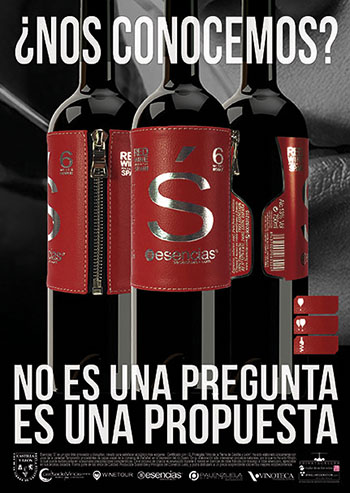
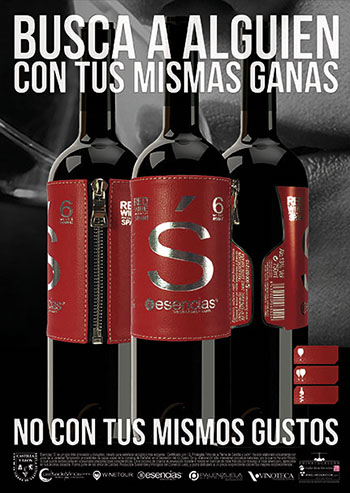
Data sheet.
Dominó Sãlao Frió 75 cl.
Red wine. Dominó. Sãlao Frió. Alentejo. Portugal. Grenache, Aragonez, Trincadeira, Arinto, Castelão, Tamarez. Bottle. 75 cl..
| Variety | |
| Country of origin |  Portugal. Portugal. |
| Region of origin |  Alentejo. Alentejo. |
| Vintage / Harvest | Currently marketed by the producer. |
| Format | Bottle. |
| Capacity | 75 cl. |
| Alcohol content | 12% Vol. |
| Ecological production | Yes, is an ecological product with full traceability in each of the production processes |
| Visual tasting note | Almost black, Blueberry color, Red meniscus, Garnet iridescence. |
| Olfactory tasting note | Nail, Round, Elegant toasts. |
| Tasting note | Bulky, Subtle, Fused tannins, Very marked retronasal. |
| Recommended pairing | Salads, Chocolate desserts, Capon, Dishes cooked with herbs. |
| Consumption temperature | 16ºC. |
| Typology | Red wine. |
| Producer | Dominó. |
| Name | Sãlao Frió. |
| Weight | 1.500 gr. (1,5 Kg.). |
| Product reference | WAN4564686 |
| Actual price | 25,95 € . This product is currently not available. |
| Please keep in mind | The information provided and referred to the product features and details has been provided by the expert, manufacturer or producer or published on the official sites. In no case can it be considered as assessment made by our team, unless expressly stated otherwise. We suggest you to refer to the comments and reviews posted by our customers and users to expand and contrast this information. |
| Misreading | Our team provides this information and details in ESPAÑOL language. If you browse in another language note that the information contained may have been translated from the original language through an automated real-time process that has not been supervised by our human team. In case of doubt, misunderstanding or misreading about the content of this information you should refer to the original version of this page or contact our customer service team. |
| Product image | The product image or its label is only relevant for graphic purposes, so it may not match the identification of the vintage or other features and details of the product for sale. This product is provided in the conditions and format in which it is marketed at the current time. This product is not identified or supplied in a specific vintage. The product image and label may not match the vintage identification or other characteristics and details of the product for sale. |
| Country of origin | Spain. This product is shipped from Spain. |
| Storage position | Lateral position, horizontal bottle. |
| Storage temperature | Store at a constant temperature between 10-17ºC. Humidity should be constant around 60-80%. |
| Recommendations | Keep preferably away from light. |
| Accessories | This product is provided in the conditions and format in which it is marketed at the current time. In cases where the product includes an additional packaging, box and/or case, These accessories will be included in the shipment as long as they comply with the dimensions of the special packaging adapted and approved for the transport of beverages. In general, the images of the products that we publish on our website are only relevant for graphic purposes. The images do not show other accessories such as additional packaging (box, case, etc.) or promotional elements that may occasionally be included by the manufacturer along with the product. If you wish, we can inform you about the additional packaging, elements and accessories included with the product at the current time. |
| Legal Notice | It is against the law to sell or supply alcohol to, or to obtain alcohol on behalf of a person under the age of 18 years. If you are not more than 18 years old, you must leave this website. |
| Consumption | It is recommended to drink in moderation and demonstrate a responsible consumption of alcoholic beverages. |
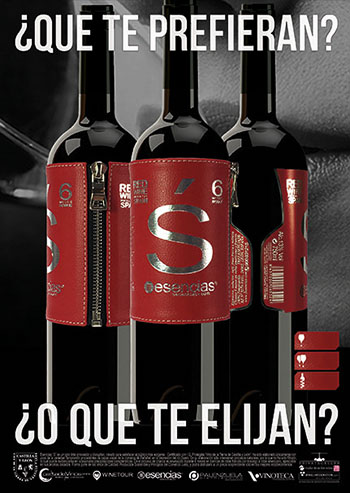
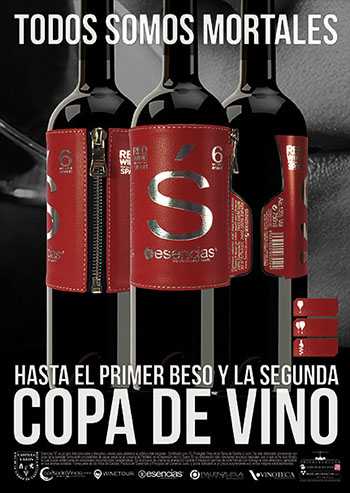
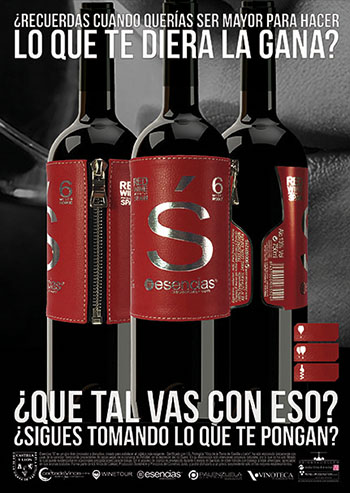
 Italy
Italy France
France Argentina
Argentina United States
United States Australia
Australia Chile
Chile New Zealand
New Zealand South Africa
South Africa



 Germany
Germany Austria
Austria



 Tokaj-Hegyalja
Tokaj-Hegyalja





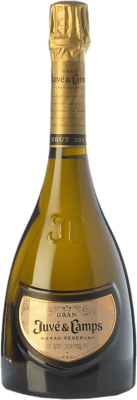
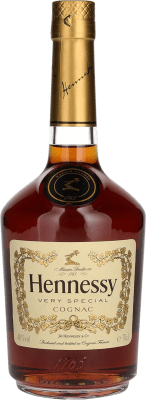


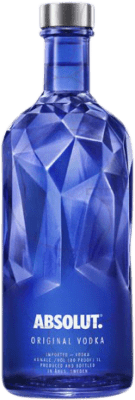






















 Language English
Language English






































